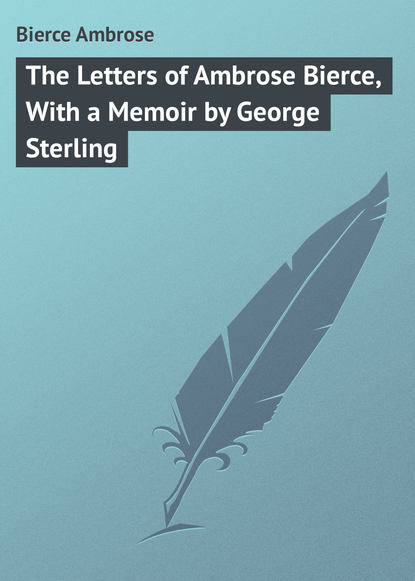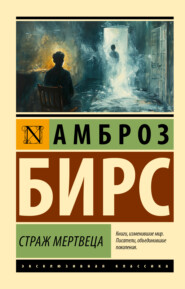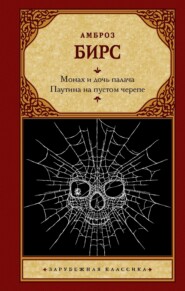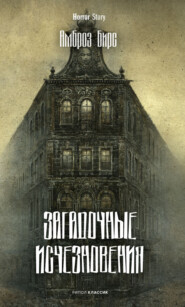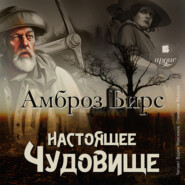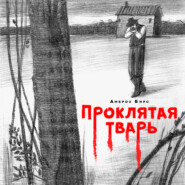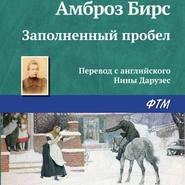По всем вопросам обращайтесь на: info@litportal.ru
(©) 2003-2024.
✖
The Letters of Ambrose Bierce, With a Memoir by George Sterling
Настройки чтения
Размер шрифта
Высота строк
Поля
November 29,
1892.
Dear Blanche,
Only just a word to say that I have repented of my assent to your well-meant proposal for your father to write of me. If there is anything in my work in letters that engages his interest, or in my literary history – that is well enough, and I shall not mind. But "biography" in the other sense is distasteful to me. I never read biographical "stuff" of other writers – of course you know "stuff" is literary slang for "matter" – and think it "beside the question." Moreover, it is distinctly mischievous to letters. It throws no light on one's work, but on the contrary "darkens counsel." The only reason that posterity judges work with some slight approach to accuracy is that posterity knows less, and cares less, about the author's personality. It considers his work as impartially as if it had found it lying on the ground with no footprints about it and no initials on its linen.
My brother is not "fully cognizant" of my history, anyhow – not of the part that is interesting.
So, on the whole, I'll ask that it be not done. It was only my wish to please that made me consent. That wish is no weaker now, but I would rather please otherwise.
I trust that you arrived safe and well, and that your memory of those few stormy days is not altogether disagreeable. Sincerely your friend, Ambrose Bierce.
Angwin,
December 25,
1892.
My dear Blanche,
Returning here from the city this morning, I find your letter. And I had not replied to your last one before that! But that was because I hoped to see you at your home. I was unable to do so – I saw no one (but Richard) whom I really wanted to see, and had not an hour unoccupied by work or "business" until this morning. And then – it was Christmas, and my right to act as skeleton at anybody's feast by even so much as a brief call was not clear. I hope my brother will be as forgiving as I know you will be.
When I went down I was just recovering from as severe an attack of illness as I ever had in my life. Please consider unsaid all that I have said in praise of this mountain, its air, water, and everything that is its.
* * *
It was uncommonly nice of Hume to entertain so good an opinion of me; if you had seen him a few days later you would have found a different state of affairs, probably; for I had been exhausting relays of vials of wrath upon him for delinquent diligence in securing copyright for my little story – whereby it is uncopyrighted. I ought to add that he has tried to make reparation, and is apparently contrite to the limit of his penitential capacity.
No, there was no other foundation for the little story than its obvious naturalness and consistency with the sentiments "appropriate to the season." When Christendom is guzzling and gorging and clowning it has not time to cease being cruel; all it can do is to augment its hypocrisy a trifle.
Please don't lash yourself and do various penances any more for your part in the plaguing of poor Russell; he is quite forgotten in the superior affliction sent upon James Whitcomb Riley. That seems a matter of genuine public concern, if I may judge by what I heard in town (and I heard little else) and by my letters and "esteemed" (though testy) "contemporaries." Dear, dear, how sensitive people are becoming!
Richard has promised me the Blanchescape that I have so patiently waited for while you were practicing the art of looking pretty in preparation for the sitting, so now I am happy. I shall put you opposite Joaquin Miller, who is now framed and glazed in good shape. I have also your father's sketch of me – that is, I got it and left it in San Francisco to be cleaned if possible; it was in a most unregenerate state of dirt and grease.
Seeing Harry Bigelow's article in the Wave on women who write (and it's unpleasantly near to the truth of the matter) I feel almost reconciled to the failure of my gorgeous dream of making a writer of you. I wonder if you would have eschewed the harmless, necessary tub and danced upon the broken bones of the innocuous toothbrush. Fancy you with sable nails and a soiled cheek, uttering to the day what God taught in the night! Let us be thankful that the peril is past.
The next time I go to "the Bay" I shall go to 1019 first.
God bless you for a good girl. Ambrose Bierce.
[First part of this letter missing.]
* * *
Yes, I know Blackburn Harte has a weakness for the proletariat of letters * * * and doubtless thinks Riley good because he is "of the people," peoply. But he will have to endure me as well as he can. You ask my opinion of Burns. He has not, I think, been translated into English, and I do not (that is, I can but will not) read that gibberish. I read Burns once – that was once too many times; but happily it was before I knew any better, and so my time, being worthless, was not wasted.
I wish you could be up here this beautiful weather. But I dare say it would rain if you came. In truth, it is "thickening" a trifle just because of my wish. And I wish I had given you, for your father, all the facts of my biography from the cradle – downward. When you come again I shall, if you still want them. For I'm worried half to death with requests for them, and when I refuse am no doubt considered surly or worse. And my refusal no longer serves, for the biography men are beginning to write my history from imagination. So the next time I see you I shall give you (orally) that "history of a crime," my life. Then, if your father is still in the notion, he can write it from your notes, and I can answer all future inquiries by enclosing his article.
Do you know? – you will, I think, be glad to know – that I have many more offers for stories at good prices, than I have the health to accept. (For I am less nearly well than I have told you.) Even the Examiner has "waked up" (I woke it up) to the situation, and now pays me $20 a thousand words; and my latest offer from New York is $50.
I hardly know why I tell you this unless it is because you tell me of any good fortune that comes to your people, and because you seem to take an interest in my affairs such as nobody else does in just the same unobjectionable and, in fact, agreeable way. I wish you were my "real, sure-enough" niece. But in that case I should expect you to pass all your time at Howell Mountain, with your uncle and cousin. Then I should teach you to write, and you could expound to me the principles underlying the art of being the best girl in the world. Sincerely yours, Ambrose Bierce.
Angwin,
January 4,
1893.
My dear Blanche,
Not hearing from [you] after writing you last week, I fear you are ill – may I not know? I am myself ill, as I feared. On Thursday last I was taken violently ill indeed, and have but just got about. In truth, I'm hardly able to write you, but as I have to go to work on Friday, sure, I may as well practice a little on you. And the weather up here is Paradisaical. Leigh and I took a walk this morning in the woods. We scared up a wild deer, but I did not feel able to run it down and present you with its antlers.
I hope you are well, that you are all well. And I hope Heaven will put it into your good brother's heart to send me that picture of the sister who is so much too good for him – or anybody.
In the meantime, and always, God bless you. Ambrose Bierce.
My boy (who has been an angel of goodness to me in my illness) sends his love to you and all your people.
Angwin, Cal.,
January 14,
1893.
My dear Partington,
You see the matter is this way. You can't come up here and go back the same day – at least that would give you but about an hour here. You must remain over night. Now I put it to you – how do you think I'd feel if you came and remained over night and I, having work to do, should have to leave you to your own devices, mooning about a place that has nobody to talk to? When a fellow comes a long way to see me I want to see a good deal of him, however he may feel about it. It is not the same as if he lived in the same bailiwick and "dropped in." That is why, in the present state of my health and work, I ask all my friends to give me as long notice of their coming as possible. I'm sure you'll say I am right, inasmuch as certain work if undertaken must be done by the time agreed upon.
My relations with Danziger are peculiar – as any one's relations with him must be. In the matter of which you wished to speak I could say nothing. For this I must ask you to believe there are reasons. It would not have been fair not to let you know, before coming, that I would not talk of him.
I thought, though, that you would probably come up to-day if I wrote you. Well, I should like you to come and pass a week with me. But if you come for a day I naturally want it to be an "off" day with me. Sincerely yours, Ambrose Bierce.
Angwin,
January 23,
1893.
My dear Blanche,
I should have written you sooner; it has been ten whole days since the date of your last letter. But I have not been in the mood of letter writing, and am prepared for maledictions from all my neglected friends but you. My health is better. Yesterday I returned from Napa, where I passed twenty-six hours, buried, most of the time, in fog; but apparently it has not harmed me. The weather here remains heavenly. * * *
If I grow better in health I shall in time feel able to extend my next foray into the Lowlands as far as Oakland and Berkeley.
Here are some fronds of maiden-hair fern that I have just brought in. The first wild flowers of the season are beginning to venture out and the manzanitas are a sight to see.
With warmest regards to all your people, I am, as ever, your most unworthy uncle, Ambrose Bierce.
Angwin,
February 5,
1893.
My dear Blanche,
What an admirable reporter you would be! Your account of the meeting with Miller in the restaurant and of the "entertainment" are amusing no end. * * * By the way, I observe a trooly offle "attack" on me in the Oakland Times of the 3rd (I think) * * * (I know of course it means me – I always know that when they pull out of their glowing minds that old roasted chestnut about "tearing down" but not "building up" – that is to say, effacing one imposture without giving them another in place of it.) The amusing part of the business is that he points a contrast between me and Realf (God knows there's unlikeness enough) quite unconscious of the fact that it is I and no other who have "built up" Realf's reputation as a poet – published his work, and paid him for it, when nobody else would have it; repeatedly pointed out its greatness, and when he left that magnificent crown of sonnets behind him protested that posterity would know California better by the incident of his death than otherwise – not a soul, until now, concurring in my view of the verses. Believe me, my trade is not without its humorous side.
Leigh and I went down to the waterfall yesterday. It was almost grand – greater than I had ever seen it – and I took the liberty to wish that you might see it in that state. My wish must have communicated itself, somehow, though imperfectly, to Leigh, for as I was indulging it he expressed the same wish with regard to Richard.
1892.
Dear Blanche,
Only just a word to say that I have repented of my assent to your well-meant proposal for your father to write of me. If there is anything in my work in letters that engages his interest, or in my literary history – that is well enough, and I shall not mind. But "biography" in the other sense is distasteful to me. I never read biographical "stuff" of other writers – of course you know "stuff" is literary slang for "matter" – and think it "beside the question." Moreover, it is distinctly mischievous to letters. It throws no light on one's work, but on the contrary "darkens counsel." The only reason that posterity judges work with some slight approach to accuracy is that posterity knows less, and cares less, about the author's personality. It considers his work as impartially as if it had found it lying on the ground with no footprints about it and no initials on its linen.
My brother is not "fully cognizant" of my history, anyhow – not of the part that is interesting.
So, on the whole, I'll ask that it be not done. It was only my wish to please that made me consent. That wish is no weaker now, but I would rather please otherwise.
I trust that you arrived safe and well, and that your memory of those few stormy days is not altogether disagreeable. Sincerely your friend, Ambrose Bierce.
Angwin,
December 25,
1892.
My dear Blanche,
Returning here from the city this morning, I find your letter. And I had not replied to your last one before that! But that was because I hoped to see you at your home. I was unable to do so – I saw no one (but Richard) whom I really wanted to see, and had not an hour unoccupied by work or "business" until this morning. And then – it was Christmas, and my right to act as skeleton at anybody's feast by even so much as a brief call was not clear. I hope my brother will be as forgiving as I know you will be.
When I went down I was just recovering from as severe an attack of illness as I ever had in my life. Please consider unsaid all that I have said in praise of this mountain, its air, water, and everything that is its.
* * *
It was uncommonly nice of Hume to entertain so good an opinion of me; if you had seen him a few days later you would have found a different state of affairs, probably; for I had been exhausting relays of vials of wrath upon him for delinquent diligence in securing copyright for my little story – whereby it is uncopyrighted. I ought to add that he has tried to make reparation, and is apparently contrite to the limit of his penitential capacity.
No, there was no other foundation for the little story than its obvious naturalness and consistency with the sentiments "appropriate to the season." When Christendom is guzzling and gorging and clowning it has not time to cease being cruel; all it can do is to augment its hypocrisy a trifle.
Please don't lash yourself and do various penances any more for your part in the plaguing of poor Russell; he is quite forgotten in the superior affliction sent upon James Whitcomb Riley. That seems a matter of genuine public concern, if I may judge by what I heard in town (and I heard little else) and by my letters and "esteemed" (though testy) "contemporaries." Dear, dear, how sensitive people are becoming!
Richard has promised me the Blanchescape that I have so patiently waited for while you were practicing the art of looking pretty in preparation for the sitting, so now I am happy. I shall put you opposite Joaquin Miller, who is now framed and glazed in good shape. I have also your father's sketch of me – that is, I got it and left it in San Francisco to be cleaned if possible; it was in a most unregenerate state of dirt and grease.
Seeing Harry Bigelow's article in the Wave on women who write (and it's unpleasantly near to the truth of the matter) I feel almost reconciled to the failure of my gorgeous dream of making a writer of you. I wonder if you would have eschewed the harmless, necessary tub and danced upon the broken bones of the innocuous toothbrush. Fancy you with sable nails and a soiled cheek, uttering to the day what God taught in the night! Let us be thankful that the peril is past.
The next time I go to "the Bay" I shall go to 1019 first.
God bless you for a good girl. Ambrose Bierce.
[First part of this letter missing.]
* * *
Yes, I know Blackburn Harte has a weakness for the proletariat of letters * * * and doubtless thinks Riley good because he is "of the people," peoply. But he will have to endure me as well as he can. You ask my opinion of Burns. He has not, I think, been translated into English, and I do not (that is, I can but will not) read that gibberish. I read Burns once – that was once too many times; but happily it was before I knew any better, and so my time, being worthless, was not wasted.
I wish you could be up here this beautiful weather. But I dare say it would rain if you came. In truth, it is "thickening" a trifle just because of my wish. And I wish I had given you, for your father, all the facts of my biography from the cradle – downward. When you come again I shall, if you still want them. For I'm worried half to death with requests for them, and when I refuse am no doubt considered surly or worse. And my refusal no longer serves, for the biography men are beginning to write my history from imagination. So the next time I see you I shall give you (orally) that "history of a crime," my life. Then, if your father is still in the notion, he can write it from your notes, and I can answer all future inquiries by enclosing his article.
Do you know? – you will, I think, be glad to know – that I have many more offers for stories at good prices, than I have the health to accept. (For I am less nearly well than I have told you.) Even the Examiner has "waked up" (I woke it up) to the situation, and now pays me $20 a thousand words; and my latest offer from New York is $50.
I hardly know why I tell you this unless it is because you tell me of any good fortune that comes to your people, and because you seem to take an interest in my affairs such as nobody else does in just the same unobjectionable and, in fact, agreeable way. I wish you were my "real, sure-enough" niece. But in that case I should expect you to pass all your time at Howell Mountain, with your uncle and cousin. Then I should teach you to write, and you could expound to me the principles underlying the art of being the best girl in the world. Sincerely yours, Ambrose Bierce.
Angwin,
January 4,
1893.
My dear Blanche,
Not hearing from [you] after writing you last week, I fear you are ill – may I not know? I am myself ill, as I feared. On Thursday last I was taken violently ill indeed, and have but just got about. In truth, I'm hardly able to write you, but as I have to go to work on Friday, sure, I may as well practice a little on you. And the weather up here is Paradisaical. Leigh and I took a walk this morning in the woods. We scared up a wild deer, but I did not feel able to run it down and present you with its antlers.
I hope you are well, that you are all well. And I hope Heaven will put it into your good brother's heart to send me that picture of the sister who is so much too good for him – or anybody.
In the meantime, and always, God bless you. Ambrose Bierce.
My boy (who has been an angel of goodness to me in my illness) sends his love to you and all your people.
Angwin, Cal.,
January 14,
1893.
My dear Partington,
You see the matter is this way. You can't come up here and go back the same day – at least that would give you but about an hour here. You must remain over night. Now I put it to you – how do you think I'd feel if you came and remained over night and I, having work to do, should have to leave you to your own devices, mooning about a place that has nobody to talk to? When a fellow comes a long way to see me I want to see a good deal of him, however he may feel about it. It is not the same as if he lived in the same bailiwick and "dropped in." That is why, in the present state of my health and work, I ask all my friends to give me as long notice of their coming as possible. I'm sure you'll say I am right, inasmuch as certain work if undertaken must be done by the time agreed upon.
My relations with Danziger are peculiar – as any one's relations with him must be. In the matter of which you wished to speak I could say nothing. For this I must ask you to believe there are reasons. It would not have been fair not to let you know, before coming, that I would not talk of him.
I thought, though, that you would probably come up to-day if I wrote you. Well, I should like you to come and pass a week with me. But if you come for a day I naturally want it to be an "off" day with me. Sincerely yours, Ambrose Bierce.
Angwin,
January 23,
1893.
My dear Blanche,
I should have written you sooner; it has been ten whole days since the date of your last letter. But I have not been in the mood of letter writing, and am prepared for maledictions from all my neglected friends but you. My health is better. Yesterday I returned from Napa, where I passed twenty-six hours, buried, most of the time, in fog; but apparently it has not harmed me. The weather here remains heavenly. * * *
If I grow better in health I shall in time feel able to extend my next foray into the Lowlands as far as Oakland and Berkeley.
Here are some fronds of maiden-hair fern that I have just brought in. The first wild flowers of the season are beginning to venture out and the manzanitas are a sight to see.
With warmest regards to all your people, I am, as ever, your most unworthy uncle, Ambrose Bierce.
Angwin,
February 5,
1893.
My dear Blanche,
What an admirable reporter you would be! Your account of the meeting with Miller in the restaurant and of the "entertainment" are amusing no end. * * * By the way, I observe a trooly offle "attack" on me in the Oakland Times of the 3rd (I think) * * * (I know of course it means me – I always know that when they pull out of their glowing minds that old roasted chestnut about "tearing down" but not "building up" – that is to say, effacing one imposture without giving them another in place of it.) The amusing part of the business is that he points a contrast between me and Realf (God knows there's unlikeness enough) quite unconscious of the fact that it is I and no other who have "built up" Realf's reputation as a poet – published his work, and paid him for it, when nobody else would have it; repeatedly pointed out its greatness, and when he left that magnificent crown of sonnets behind him protested that posterity would know California better by the incident of his death than otherwise – not a soul, until now, concurring in my view of the verses. Believe me, my trade is not without its humorous side.
Leigh and I went down to the waterfall yesterday. It was almost grand – greater than I had ever seen it – and I took the liberty to wish that you might see it in that state. My wish must have communicated itself, somehow, though imperfectly, to Leigh, for as I was indulging it he expressed the same wish with regard to Richard.





